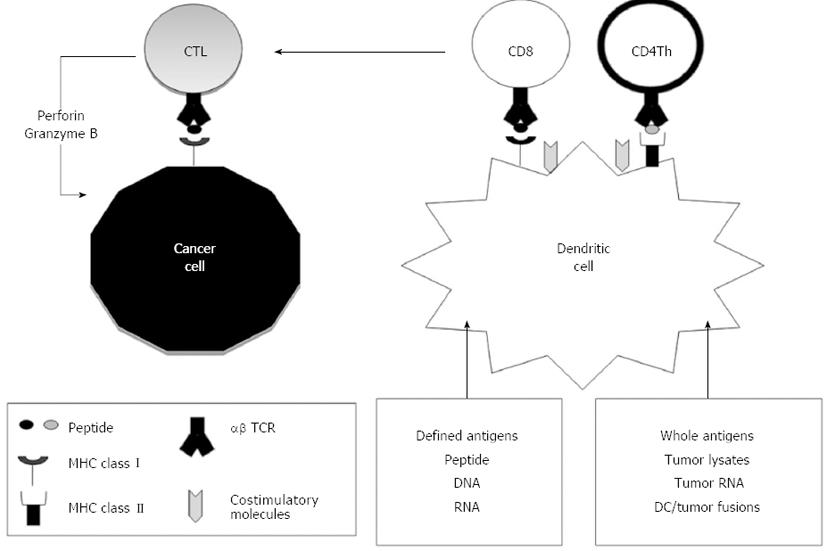Copyright
©2013 Baishideng Publishing Group Co.
World J Gastroenterol. Dec 14, 2013; 19(46): 8531-8542
Published online Dec 14, 2013. doi: 10.3748/wjg.v19.i46.8531
Published online Dec 14, 2013. doi: 10.3748/wjg.v19.i46.8531
Figure 2 Dendritic cell vaccines.
Dendritic cells (DCs) are loaded with antigens, which are taken up and degraded into peptide fragments by antigen-presenting cells such as immature DCs. DCs process tumor-derived peptides and major histocompatibility complex (MHC) class I peptides derived from DCs. They form MHC class I-peptide complexes in the endoplasmic reticulum, which are then transported to the surface of the DCs and presented to CD8+ T cells. DCs also synthesize MHC class II peptides in the endoplasmic reticulum, which are transported to the cytoplasm where MHC class II-peptide complexes are assembled with tumor-derived peptides and presented to CD4+ T cells. CD8+ T cells become cytotoxic T lymphocytes (CTLs), which destroy cancer cells through effector molecules such as perforin and granzyme B. TCR: T cell receptor.
- Citation: Koido S, Ohkusa T, Homma S, Namiki Y, Takakura K, Saito K, Ito Z, Kobayashi H, Kajihara M, Uchiyama K, Arihiro S, Arakawa H, Okamoto M, Gong J, Tajiri H. Immunotherapy for colorectal cancer. World J Gastroenterol 2013; 19(46): 8531-8542
- URL: https://www.wjgnet.com/1007-9327/full/v19/i46/8531.htm
- DOI: https://dx.doi.org/10.3748/wjg.v19.i46.8531









